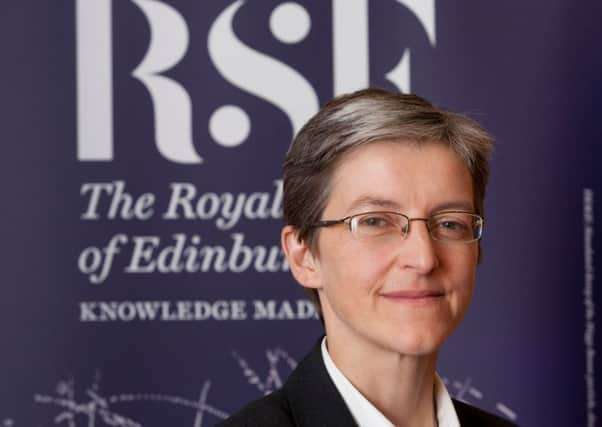Rebekah Widdowfield: Enlightened dialogue need to build the world we live in


The answer? Scotland’s National Academy – the Royal Society of Edinburgh. Established in 1783 for the advancement of learning and useful knowledge, the RSE was born out of the Scottish Enlightenment and remains true to two underpinning principles.
First, a broad understanding and appreciation of different forms of knowledge – with an elected Fellowship that encompasses, unusually amongst national academies, the breadth of academic disciplines, but also leading figures from business, the arts and the public and third sectors and, secondly, a strong emphasis on the practical application of knowledge for the betterment of society – in the words of our strapline, ‘knowledge made useful’.
Advertisement
Hide AdAdvertisement
Hide AdWe deliver on that mission in a number of ways: inspiring and supporting young talent through a wide-ranging programme of research grants and awards, science masterclasses, and support for the Young Academy of Scotland and engaging the public across Scotland on key contemporary issues through our outreach programme, RSE@ and a wide-ranging programme of public events.
We also provide impartial advice and expertise to inform policy and practice through in-depth examination of major issues and provide expert comment on topical matters while promoting Scotland’s interests overseas through building relationships with sister academies across the world and facilitating research collaborations.
We know that there are many challenges facing Scotland and the wider world as well as choices to be made about the kind of society we want to live in and our Fellows give of their time freely in support of our public benefit role.
Issues facing society or policy makers seldom manifest themselves in narrow disciplinary or sectoral terms and our breadth of expertise enables us to advise across a wide range of issues, a holistic approach harnessing the diversity of expertise.
Our current policy advice work includes revisiting our 2012 review of women in STEM to consider progress made and further action, a major inquiry into energy supply and demand and an extensive programme of work around the implications of the UK leaving the EU.
While we value and draw heavily on the views and advice of experts from within our Fellowship and the organisations we work with, dialogue with the public is critical in supporting good policy decisions and choices.
For many years, RSE has supported a wide programme of public engagement – in the last few weeks you could, for example, have taken part in a discussion on innovations in organ transplantation, heard about the design and construction of the Queensferry Crossing or debated the role of referendums.
We are keen to build on this history of public engagement, bringing it together with our policy work, to support informed debate and discussion. That includes thinking about the impact of new scientific knowledge and supporting a wider public dialogue to understand how technological developments – from robotics to fracking, gene editing to self-driving cars – are being talked about and thought about to support the relevance of research and its application.
Advertisement
Hide AdAdvertisement
Hide AdHow comfortable are we with the automation of personal services? In what circumstances are we happy for our food to be modified? What trade-offs are we willing to accept between privacy and improved health diagnostics? As well as understanding the opportunities offered by new technology, and the evidence underpinning policy choice on issues as diverse as migration to taxation, energy to environmental protection, we need to reflect on our values and the kind of society we want to be and to live in.
The Scottish Enlightenment was rooted in discussion and debate: it helped shape new knowledge, drive discovery and foster new insights and ideas. RSE wants to support a modern enlightenment of conversation and debate, bringing people together and harnessing collective knowledge for the benefit of society. Come and join us in those discussions.
Rebekah Widdowfield is CEO of the Royal Society of Edinburgh, www.therse.org.uk